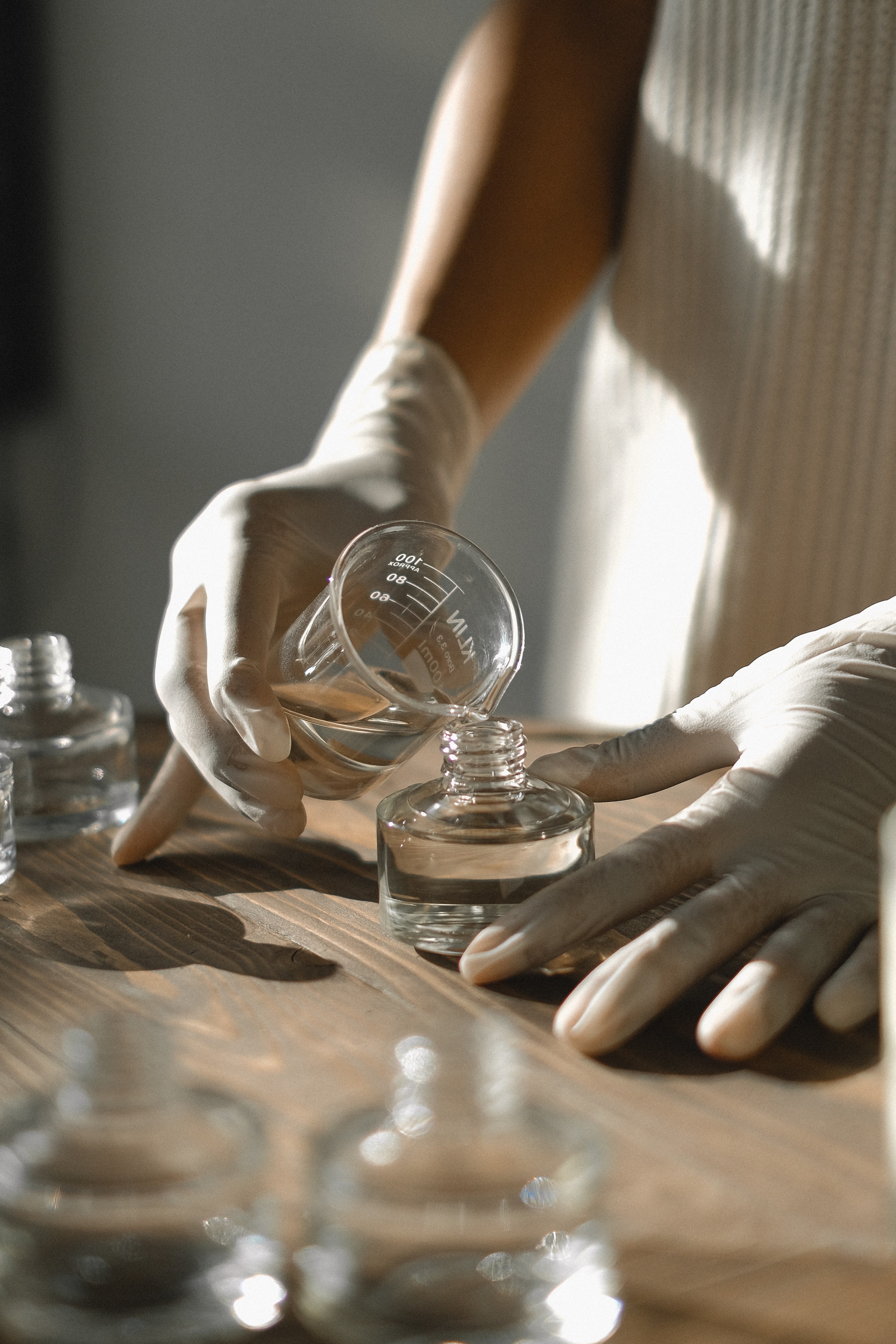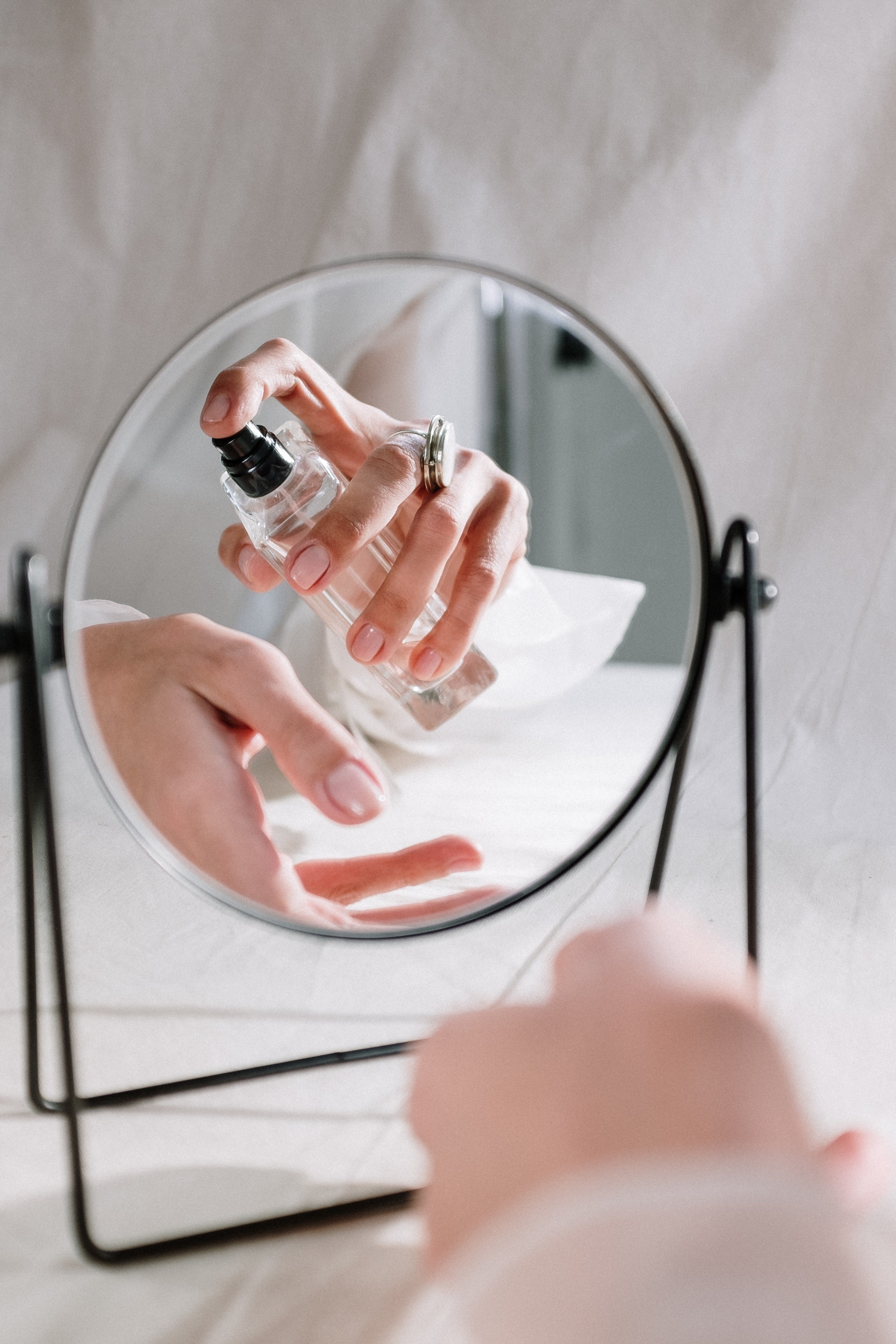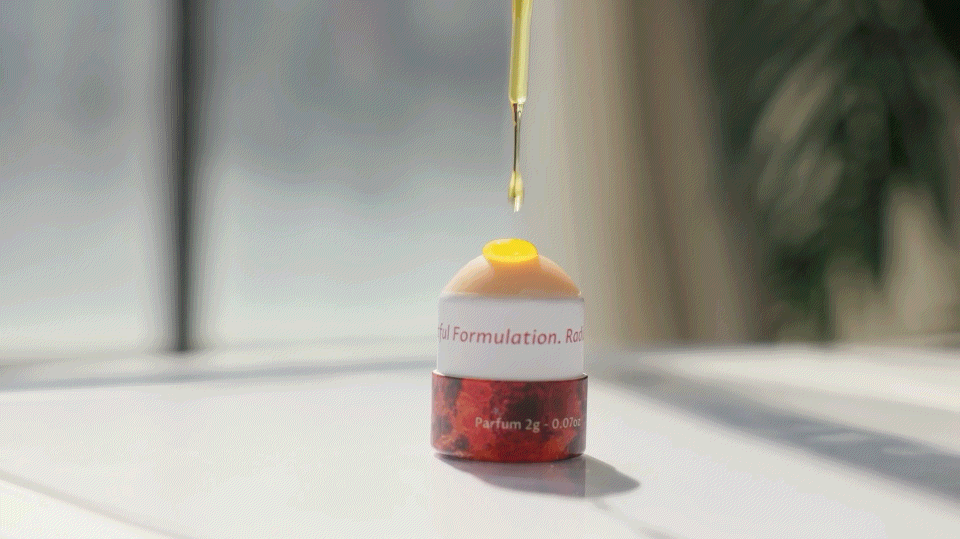What Is Alcohol Doing in My Perfume?

Alcohol has long been an integral component of perfumes, playing a crucial role in enhancing fragrance performance and longevity. However, there has been a growing demand for alcohol-free alternatives due personal preferences, skin sensitivities, and cultural or religious considerations. We explore the role of alcohol in perfumes and examine types of alcohol-free fragrances.
Alcohol in Perfumes
Alcohol serves as a solvent in perfumes, helping to dissolve and disperse the aromatic components of the fragrance. It acts as a carrier, ensuring that the fragrance oils are evenly distributed and remain stable within the perfume formulation. Additionally, alcohol acts as a diluent, reducing the intensity of the concentrated fragrance oils to create a wearable and balanced scent.
Alcohol evaporates quickly upon application. This evaporation process releases the initial burst of fragrance. The alcohol helps disperse the volatile aromatic compounds into the air, creating the initial impression and allowing the fragrance to project and be noticeable to others.
Alcohol acts as a preservative in perfumes, inhibiting the growth of bacteria, fungi, and other microorganisms that may compromise the fragrance's integrity. It helps maintain the stability and quality of the perfume over time, preventing spoilage and ensuring a longer shelf life.
Alcohol-Free Perfumes
Alcohol-free options cater to those with specific preferences or sensitivities, providing a different sensory experience and alternative application methods.
Solid Perfumes - Solid perfumes are composed of a blend of aromatic compounds and carrier waxes or oils. They are applied directly to the skin using fingertips or a small brush, allowing for a more intimate and controlled application. Solid perfumes tend to have a longer-lasting scent due to the slow release of fragrance from the waxes and oils. All State of Change perfumes are alcohol-free solid perfumes!
Water-Based Alternatives - Instead of alcohol, these perfumes use water as the main solvent. Water-based perfumes can have a lighter and more refreshing feel on the skin, making them ideal for those who prefer a subtler scent experience.
Oil-Based Formulations - Alcohol-free perfumes often utilize carrier oils, such as jojoba oil or fractionated coconut oil, as a base. These oils serve as an alternative to alcohol, providing a medium for the fragrance oils to be suspended and released on the skin. Oil-based perfumes have a richer, more moisturizing texture and tend to have a closer, longer-lasting scent that stays in proximity to the wearer. Application of an oil-based liquid perfume can be less pleasant, and more greasy, than a solid fragrance.


